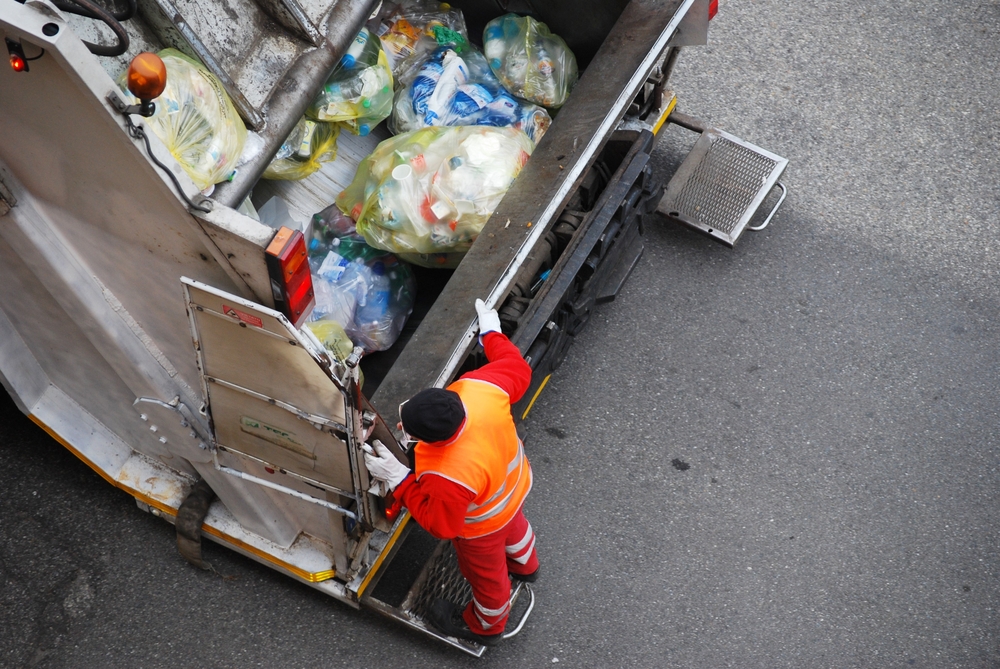
Waste Isn’t Inevitable
“It has to go somewhere.” Those of us working to solve our waste crisis hear these words all the time. The “it,” of course, means our waste. And the “somewhere” undoubtedly refers to a landfill or incinerator. When someone says, “it has to go somewhere,” what they really mean is that waste is inevitable and we just need to figure out whether to bury or burn it.
But waste isn’t inevitable. If we implement Zero Waste systems and policies like composting, reusable packaging, single-use plastics bans, and modern recycling programs, we can stop waste before it starts.
The misconception that our waste “has to go somewhere” traps policy makers into thinking they must choose between burying or burning trash. This false dilemma prevents them from implementing real Zero Waste solutions. Because if our legislators think waste is inevitable, then they can’t envision a world without it, much less pass the laws to get us there.
But landfills and incinerators will never solve the waste crisis. They only make it worse by damaging our climate, polluting our water, poisoning our air, and disproportionately burdening the communities forced to live near these toxic facilities. To solve the waste crisis, we need lawmakers to enact Zero Waste programs and policies. Every day we spend debating between burying or burning our waste is a day that we could have spent using real solutions to stop waste before it starts.

We Have Better Choices
The people who mistakenly believe that our waste “has to go somewhere” are usually the same people who accuse Zero Waste advocates of being idealistic or unrealistic. But take one look at what’s in our waste and you’ll see that most of it can be diverted, reduced, or eliminated altogether.
Almost half of the United States’ trash consists of paper, glass, metal, or plastic – most of which comes in the form of single-use packaging. Altogether, single-use packaging makes up more than 28% of our waste. We need to pivot to reusable and refillable packaging. By implementing bottle bills and the right packaging reduction and recycling policies, we can eliminate and divert most of that paper, glass, metal, and plastic from our trash bins.
Another third of our trash is food and yard waste – organic materials that can be diverted through food rescue and composting programs. And textiles, which represent almost 6% of our trash, can be diverted through reuse and recycling. States and cities can support these efforts with pay-as-you-throw programs – where people pay for the trash they throw away – which dramatically slash trash disposal by 50% or more.

All told, more than 85% of our waste can be eliminated, reduced, and diverted through programs that we already have at our fingertips. Together, these solutions can phase out the vast majority of what’s in our trash bins. So, why do most people in positions of power insist that we continue burying or burning our trash? For some, it’s a resistance to change. While others have a lack of understanding about what’s really in our waste. But most often, it has to do with money.
Big corporations profit off burying and burning trash, making single-use plastics and packaging, and selling products that quickly become waste. They want to keep it that way. And they spend huge amounts of money to stop the Zero Waste reforms we need to address this crisis.
Enough is enough. We don’t need to choose between burying and burning waste. We need to get rid of waste altogether.
Let’s Say Goodbye to Burying and Burning Trash
This isn’t to say the solutions are easy. We can’t wave a magic wand, shout “Zero Waste,” and sit back and watch. We need to roll up our sleeves and work to pass the right laws and implement the right systems. If we build clean composting programs, prioritize reuse, implement modern bottle bills and packaging reduction programs, and lean on systems like pay-as-you-throw, we will see a lot of progress in a short amount of time.
So next time you hear someone say, “it has to go somewhere,” push back. Tell them “it” doesn’t have to exist in the first place. Tell them we don’t have to choose between burying and burning our trash. Tell them we have real Zero Waste solutions within our reach right now.
Join us as we build a Zero Waste future that leaves this false choice behind. Sign up for our emails to stay informed.